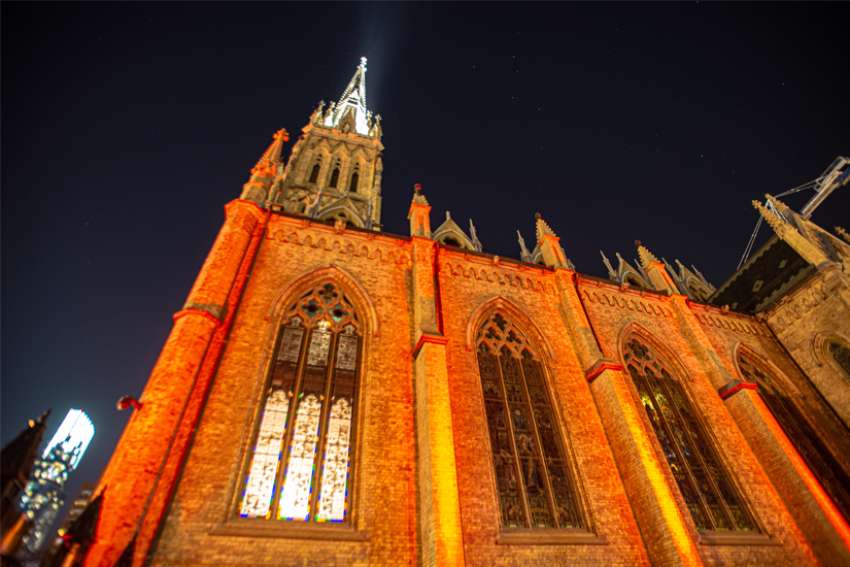“We need to thank God for the gift of our faith,” Collins told an ecumenical gathering of Protestants, Orthodox and Catholics of various rites on Nov. 20 — Red Wednesday — a day organized by Aid to the Church in Need to pray for persecuted Christians around the world.
With Toronto’s St. Michael’s Cathedral dramatically bathed in red light, in solidarity with contemporary martyrs around the world, Collins hoped the crimson Cathedral would spark the curiosity of secular Torontonians who may be unaware of the thousands of Christians who are suffering for their faith around the world.
Collins’ homily was reinforced by testimony from Toronto’s immigrant communities with ties to countries where Christians have died in the last year. Amanda Arulanandan from Sri Lanka recalled the Easter Sunday bombings in April that hit three churches and three luxury hotels in an attack by militants sympathetic to the Islamic State. Tekle Bahlibi from Eritrea outlined the oppression of Christians by an Eritrean government that has seized and shut down Christian hospitals. Iraqi immigrant Alexander Joon explained how the Christian populations of Syria and Iraq have been dramatically decreased under the pressures of war and the hostility of Islamic State terrorists.
This was the second year St. Michael’s Cathedral had marked Red Wednesday. For Collins the annual gathering is an important ecumenical opportunity. He pointed out how the Nazi jail cells that held Protestant and Catholic clergy together were an important incubator of the modern ecumenical movement and quoted Pope Francis’ oft-repeated phrase, “the ecumenism of blood.”
“We are one in our baptism. We are one in our love of Christ,” Collins said.
The global event saw cathedrals bathed in red around the world. In the Philippines over 2,000 parishes marked Red Wednesday with prayer services. Churches across the Diocese of Calgary were illuminated in red.
The Canadian Conference of Catholic Bishops (CCCB) recently published “In His Name: Statement on the Persecution of Christians” to point out that martyrdom is not a relic of the past.
“It would be tempting to imagine that such actions no longer occur today. However, sometimes a particular idea can push persons or groups to fanaticism, leading to campaigns to ‘exterminate, drive away, or subjugate’ those who do not share these ideals. This fanaticism can take on religious, political, or ethnic expressions,” the CCCB said.


